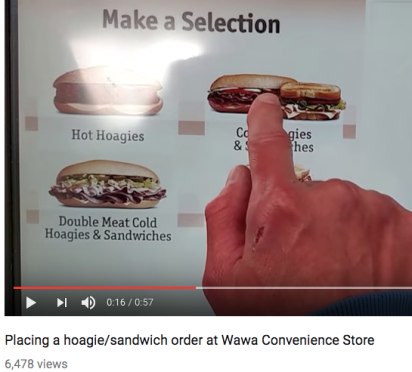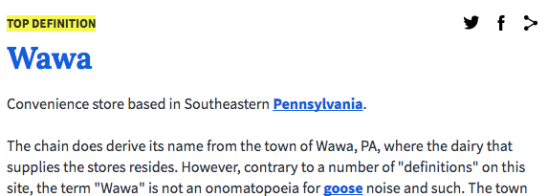Did you LEARN how to speak English or ACQUIRE that ability? What about Spanish? Or Arabic? This is a distinction that many in the language teaching world like to think about.
Some tend to think that first languages (“mother tongues”) are acquired through participation in family and society, while additional languages require explicit instruction, and are thus learned. Nobody taught us how to conjugate verbs as we acquired our first language—but this seems to be a big focus of learning additional languages in high school.
But even granting that you acquired a lot as a baby, don’t you consciously continue to learn a lot about your own “mother tongue” as you get older? Consider all the subtle forms of language we continue to learn/acquire long after we seem to have mastered at least one “mother tongue.” Some of that later-in-life language we acquire without much thought, but other language, we probably spend some conscious effort learning.
Take, for example, ordering a hoagie (sandwich) at Wawa. If you are not from greater Philadelphia, you may not even know what I’m talking about. For many, this type of language knowledge has been acquired through such subtle cumulative processes of socialization that people don’t know how to articulate it. And, it may feel awkward to ask someone directly how to order a hoagie at Wawa. So, it seems better to just muddle along in the hopes that finally you’ll get it (acquire it).
But sometimes we just don’t have the time, the connections, or the guts to acquire certain types of language knowledge through incremental interactional trial-and-error.
That’s where Citizen Sociolinguists come in.
This act of articulating subtle, socioculturally acquired knowledge—so that outsiders can learn it— is PRECISELY what Citizen Sociolinguists do. You want to know how to order a sandwich at Wawa? Citizen Sociolinguists have produced You Tube videos on it:

Not even sure what “Wawa” means? You don’t have to wait through years of socialization to acquire that knowledge, you can simply google it. If you look on Urban Dictionary, you can get a relatively straight definition:

Etc…
And, if you browse through other definitions, you will also get a taste for the ironic reverence many Philadelphian’s feel for the convenience store:

You can also browse a bit and find some good stories of people who did not follow protocol at Wawa, like this Twitter post featuring a gaffe by Sean Hannity (woe is he):

Citizen Sociolinguists then, are the language teachers you always wish you had—the ones who teach you what is NOT in the book, but what is crucial to learn to get along. The ones who answer the questions you were afraid to ask—because it seems like you are supposed to already “just know.”
This explicit learning provides a good starting point—by directing language learners (all of us) what to look for. Once I get some explicit instruction on, say, “how to order a sandwich at Wawa” or, for that matter, “how to greet someone on the street in Philadelphia,” I don’t need to follow those explicit steps, but I may begin to notice how true-to-life this depiction is—or how people vary from it—and how my own individual variation may fit in.
Citizen Sociolinguists provide us the secrets all good teachers do—combatting a fear of total ignorance that might otherwise paralyze a learner—so that we can forge ahead on our own learning path.
By the way, many contemporary applied linguists and language teachers avoid both the terms “learning” and “acquisition” in favor of “language development”—a combination of these processes. This also seems to apply to the type of growth that happens when we engage with Citizen Sociolinguists.
How have you used the Internet and the knowledge of Citizen Sociolinguists to learn a new language, or to learn new aspects of a language you’ve been struggling to understand? Has this explicit training opened new forms of participation for you? Please leave your comments below!
